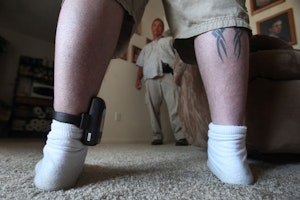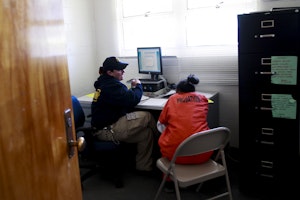Promoting the Dignity of the Invisible and Marginalized
By Adam Culbreath
After reviewing almost 300 applications and interviewing 35 finalists, we are thrilled to announce our selections for the 2013 Soros Justice Fellowships. The 2013 cohort, a mix of 14 emerging and established leaders, includes lawyers and grassroots organizers, policy advocates, an investigative journalist, a former prosecutor; a university professor, and a multidisciplinary artist/activist. Working in 9 different states and Puerto Rico, the fellows will be taking on a range of criminal justice reform issues at the local, state, and national levels.
Since its inception in 1997, the Soros Justice Fellowships Program has supported more than 300 individuals who have worked, in the aggregate, on virtually every issue on the criminal justice landscape.
What is especially striking about the 2013 cohort is its embodiment of our long-standing commitment to promote the leadership of people who have been directly impacted by this country’s harsh carceral system. Calvin Duncan, Mujahid Farid, and Tyrone Werts all served extraordinarily long periods of time in prison and now, as free men, are poised to lead others on issues that matter greatly to their communities and those who’ve endured similar experiences. Joshua Gravens was incarcerated as a child in Texas and subsequently placed on the state’s sex offense registry. He has since become a lone courageous voice speaking out against the harms suffered by people who are placed on sex offense registries as children. As a young child, Amanda Alexander endured the impact of incarceration on her own family, an ordeal that gives her firsthand insight into the work she now proposes to undertake in Detroit on behalf of similarly affected families. Charity Tolliver, who will be working to raise awareness around the distressing connection between the foster care and justice systems, is herself a foster mother and has a deep personal connection to the issue.
All of these individuals are exceptionally talented in their own right, but their collective presence in this year’s cohort signals our steadfast belief that directly-impacted individuals have a singularly critical role to play in any effort at reform.
Another characteristic of this year’s cohort is the degree to which it embraces our larger vision for supporting work on behalf of constituencies often given little voice or visibility. Whether on behalf of transgender immigrants in immigration detention (Olga Tomchin), people placed on ever-proliferating sex offense registries (Joshua Gravens), people who have grown old in prison (Mujahid Farid), or those held for months, years or decades in solitary confinement (Jackie Sumell), much of the work to be undertaken in this year’s cohort represents a commitment to promote the dignity and humanity of the most invisible and marginalized among us.
In other respects, the 2013 fellows reflect the fellowship program’s ability to inform our work at the Open Society Foundations in a variety of ways—whether on crucial criminal justice reform issues like the death penalty (Luis Trelles), racial profiling (Ian Mance), or particular manifestations of the failed war on drugs (Marbre Stahly-Butts and Kylee Sunderlin); emerging trends like the ascendance of faith in prison life (Tanya Erzen); or key moments in the policy landscape, as with the opportunities presented under the Affordable Care Act for ensuring meaningful access to health care for people returning home from prison and jail (Maureen Barden). We anticipate that all of these projects will add value, not only to their respective fields, but also to the full body of our work.
We look forward to the prospect of these individuals becoming part of the larger community of Soros Justice Fellows and expect that they will make vital contributions to the field of criminal justice reform as well as to the broader Open Society Foundations’ interest in addressing core threats to open society in the United States.
Adam Culbreath is senior team manager of Leadership and Fellowships for Open Society-U.S.


